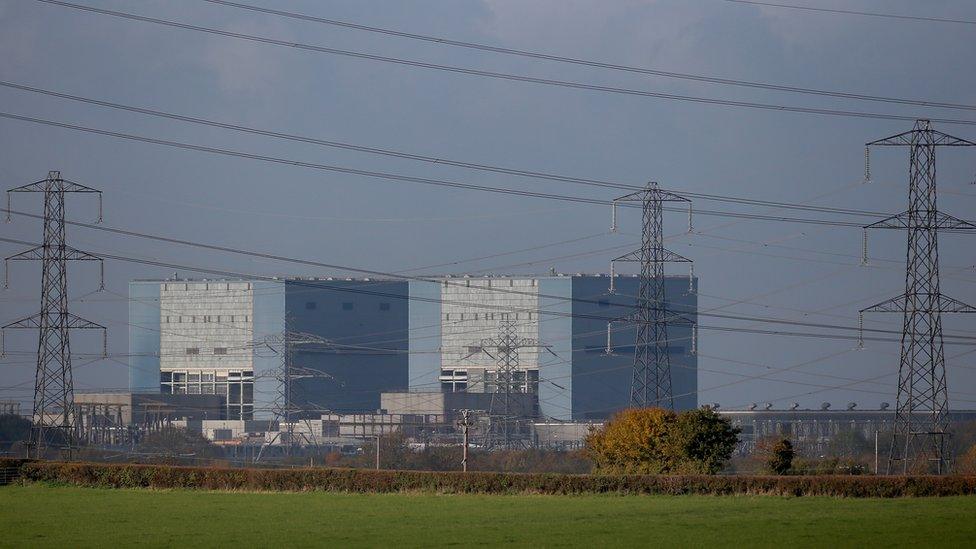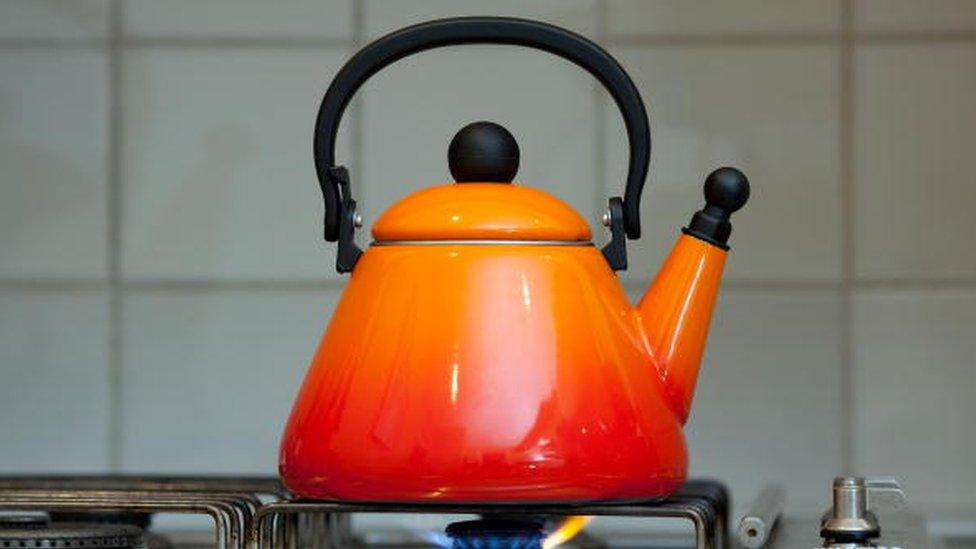How would the Tory energy price cap work?
- Published

The Tories have announced a key new detail in how their proposed energy price cap would work.
It will be an "absolute" cap, based on the way limits for pre-payment meters have worked since the beginning of April.
The party has rejected the idea of a relative cap, which would limit the difference between the cheapest fixed-price deal and the more expensive Standard Variable Tariff (SVT) to, say, 6%.
That model was particularly controversial, as critics said suppliers would simply increase the price of fixed-rate deals, to maintain the differential with SVTs.
The idea of any form of capping was rejected by the Competition and Markets Authority (CMA) last summer.
However, when it issued its final report, external, the CMA admitted its members were divided on the issue.
Absolute Cap
If the Conservatives win the election, the regulator Ofgem would be asked to introduce a price cap along the lines of one introduced in April to cap prices on households with pre-payment meters.
Currently 16% of consumers are forced to buy their energy in advance, usually because their credit rating is poor.
The CMA ordered a cap on their charges because such households do not benefit from the competition that exists for all other consumers.
Under this system, the CMA has come up with an initial maximum figure for prices, external in each region of the UK, usually in line with the cheapest existing pre-payment meter tariff.

That number is adjusted every six months, taking into account wholesale energy costs, inflation, environmental obligations and the cost of transporting energy around the network.
But the CMA has always stressed that the pre-payment meter cap is temporary. By the time every home has a smart meters installed, it expects competition between suppliers to be working properly. As a result this cap is due to expire in 2020.
The cap is also designed to allow suppliers to price below the level of the cap if they want to.
However, critics say that suppliers would be likely to increase their prices up to the level of the cap.
"In New Zealand, a price cap resulted in price bunching up around the cap, and a loss of competition," said Iain Conn, chief executive of British Gas owner Centrica.
He also said that a cap in Spain resulted in a shortfall in infrastructure spending, which had to be plugged by the government.
'Difficult in practice'
An absolute cap would be fundamentally different to the controls advocated by Labour leader Ed Miliband in the run-up to the 2015 election.
He had proposed a price freeze for just 20 months. As far as we know, the Tory cap would be permanent.
Consumer groups are generally opposed to the idea of any sort of cap, as it would tend to give consumers a false sense of security.
Householders might think they are getting a good deal, so would make even less effort to switch suppliers.
"They're really difficult to get to work in practice," says Richard Neudegg, head of regulation at comparison site Uswitch.
He also believes that a cap would create higher prices in the long term, and entrench the position of the big six suppliers.

'£260 too much'
At the end of its two-year enquiry the CMA rejected the idea of a price cap on standard variable tariffs, saying that a cap would run an "excessive risk" of undermining the competition process.
Nevertheless the economist Martin Cave, a member of the enquiry, argued that a broader cap was necessary "to address the scale of detriment" because millions of the poorest consumers are still paying too much for their gas and electricity.
In December 2016 Ofgem said that 66% of consumers were still on expensive SVTs, and paying up to £260 a year too much.
Since then, five of the big six suppliers have announced plans to raise their SVT prices, or have already done so.
There is also some evidence that fixed-price deals have also risen, closing the gap with SVTs.
But whether that is because of increasing wholesale costs - or because suppliers have been acting to mitigate the effects of a cap in advance - is hard to determine.
While Ofgem has repeatedly said there was no justification for them doing so, it has so far refused to comment on the Conservative idea of a cap.